The Illusion of Diversity: Lessons Learned from Working with a West-African Supranational Organization
- Written by Simon Stoepfgeshoff and Helen Emore
ECOWAS (Economic Community of West African States) consists of 15 countries and aims at strengthening the regional, economic, political, cultural, and social integration across its member states in West Africa. As such, it is comparable to the European Union, which has, however, reached higher levels of integration ever since its foundation. ECOWAS was founded more than 40 years ago and is headquartered in Abuja, Nigeria.
In 2018, we launched an organizational development initiative to strengthen the leadership maturity of directors and high-level professionals to take them to “the next level.” Working with senior management to develop more strategic leadership capabilities, the topic of diversity could not be left out. While from a European perspective the African continent and its countries might seem “homogenous,” cultural and ethnic diversity are amazingly high. In Nigeria alone, there are more than 300 ethnic groups.
A diverse ethnic mix of senior leaders might imply that diversity is a “given” and proactively embraced. What we experienced though was that exploiting diversity as a key asset for the ECOWAS organization remains a tremendous challenge. At first, many senior leaders felt principally positive about the diversity, even praising ECOWAS for its diverse workforce, but digging deeper and engaging them in the discussion made them realize that their understanding of diversity was rather limited and focused mostly on visible factors such as language, religious rituals, and dress code.
An additional layer of complexity of course is the political nature of the ECOWAS organization, where national interests are channeled through respective national employee groups – a risky pattern hard to avoid. Just one country, Nigeria, accounts for almost two thirds of the region’s economic weight, and the six Anglo-Saxon countries represent 80% of the economic power, against the eight French-speaking countries. This presents a more than difficult context for diversity. However, true diversity is a multifaceted concept spreading across cognitive, physical, societal, and value-based dimensions (e.g. religion, attitudes, spirituality). Not only acknowledging this but also using it to foster an organizational climate of innovation, trust, and recognition does not come easy. While on the surface issues like gender and culture were not identified as problematic in a climate marked by “political correctness,” they showed up clearly as key challenges in more individual discussions where participants were placed in peer-coaching situations.
So what can we do? Diversity needs to become a topic on the organization’s strategic agenda. While this needs to start with the political (statutory) commissioners at the top, at the end of the day, it is each and every employee of the organization who needs to live and model appropriate behaviors. It should start with continued investment into the awareness of diversity but extends to daily communication routines, encouraging teamwork in diverse teams and zero tolerance for discriminatory behaviors. One piece of anecdotal evidence that both authors witnessed working with the approximately 70 participants was the implicit expectation of the male participants that the female participants would take the notes. A small signal, but highly emblematic. Men, grab your pencils!
This article originally appeared in the fall 2018 issue of Perspectives.






